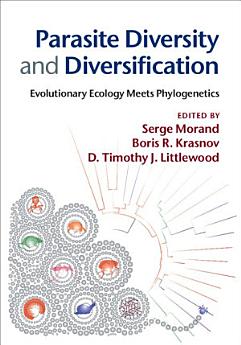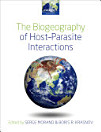Parasite Diversity and Diversification: Evolutionary Ecology Meets Phylogenetics
About this ebook
About the author
Serge Morand is CNRS researcher at the Institute of Evolutionary Sciences at the University of Montpellier II, France. His research focuses on the evolutionary ecology of host-parasite interactions and population ecology of parasites and pathogens. He is conducting several projects on the impacts of global changes on the links between biodiversity and health in Southeast Asia, using rodent-borne diseases as a model. He is the co-author of several articles and books on these fields.
Boris R. Krasnov is Professor and Head of the Mitrani Department of Desert Ecology in the Jacob Blaustein Institutes for Desert Research at the Ben-Gurion University of the Negev, Israel. He is interested in the various aspects of ecology and evolution of host-parasite relationships. Parasitic fleas on small mammals represent his main study model of parasite-host associations, although he studies some other parasite taxa as well. He is an author of three monographs, editor and co-editor of three collections and author of more than 200 scientific publications.
D. Timothy J. Littlewood is a Merit Researcher and currently Head of the Life Sciences Department at the Natural History Museum, London. His main research interests include: the systematics of platyhelminths (flatworms) and other phyla, particularly with a view to revealing evolutionary patterns associated with parasitism; the development and application of molecular tools for species diagnosis, life cycle completion and biodiversity assessment; and mitogenomics and phylogenomics pursued by means of next-generation sequencing.




